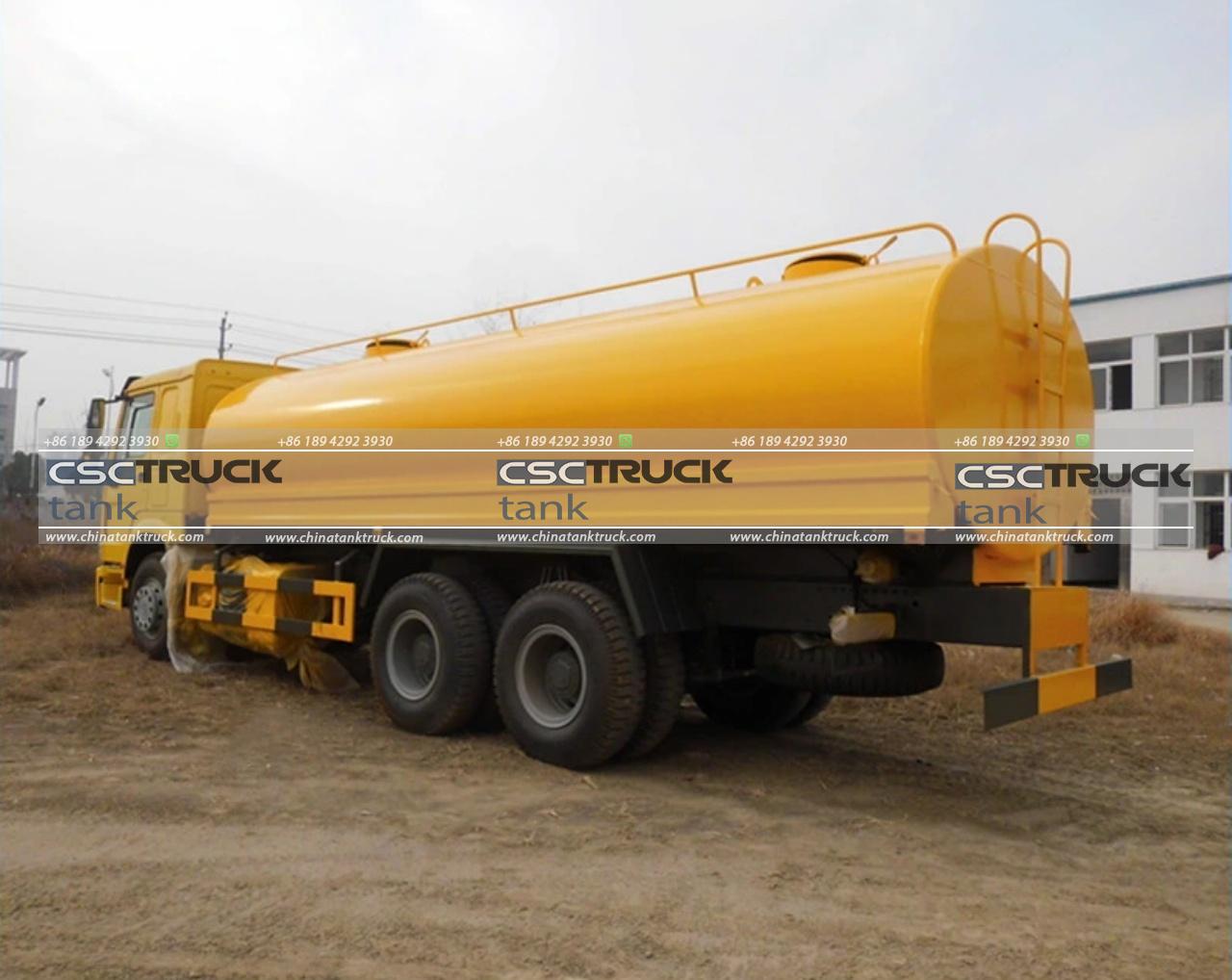What Do You Use a Water Truck For?
Water trucks, also known as water tankers, are specialized vehicles designed to transport and distribute large quantities of water, especially to areas that may lack direct access to it. Equipped with a large tank and a series of hoses, pumps, and spray nozzles, water trucks serve various purposes across industries, communities, and even in emergency response scenarios. Here’s an in-depth look at the many uses of water trucks and how they contribute to different sectors.
1. Dust Suppression on Construction and Mining Sites
One of the most common uses for water trucks is in dust suppression on construction and mining sites. When large-scale construction or excavation occurs, the ground is often disturbed, causing dust to rise into the air. This dust can be problematic, as it not only reduces air quality but can also pose health risks to workers and anyone nearby. Excessive dust can impair visibility on site and contribute to environmental pollution. In such settings, water trucks help by moistening the ground and reducing dust levels.
Water trucks distribute water through spray nozzles, which can cover large areas evenly. This process not only keeps dust down but also helps stabilize loose soil. In some cases, additives are mixed with the water to improve soil stabilization, extending the dust suppression effect even after the water has dried. Water trucks play a crucial role in ensuring safer and more environmentally friendly construction and mining operations.
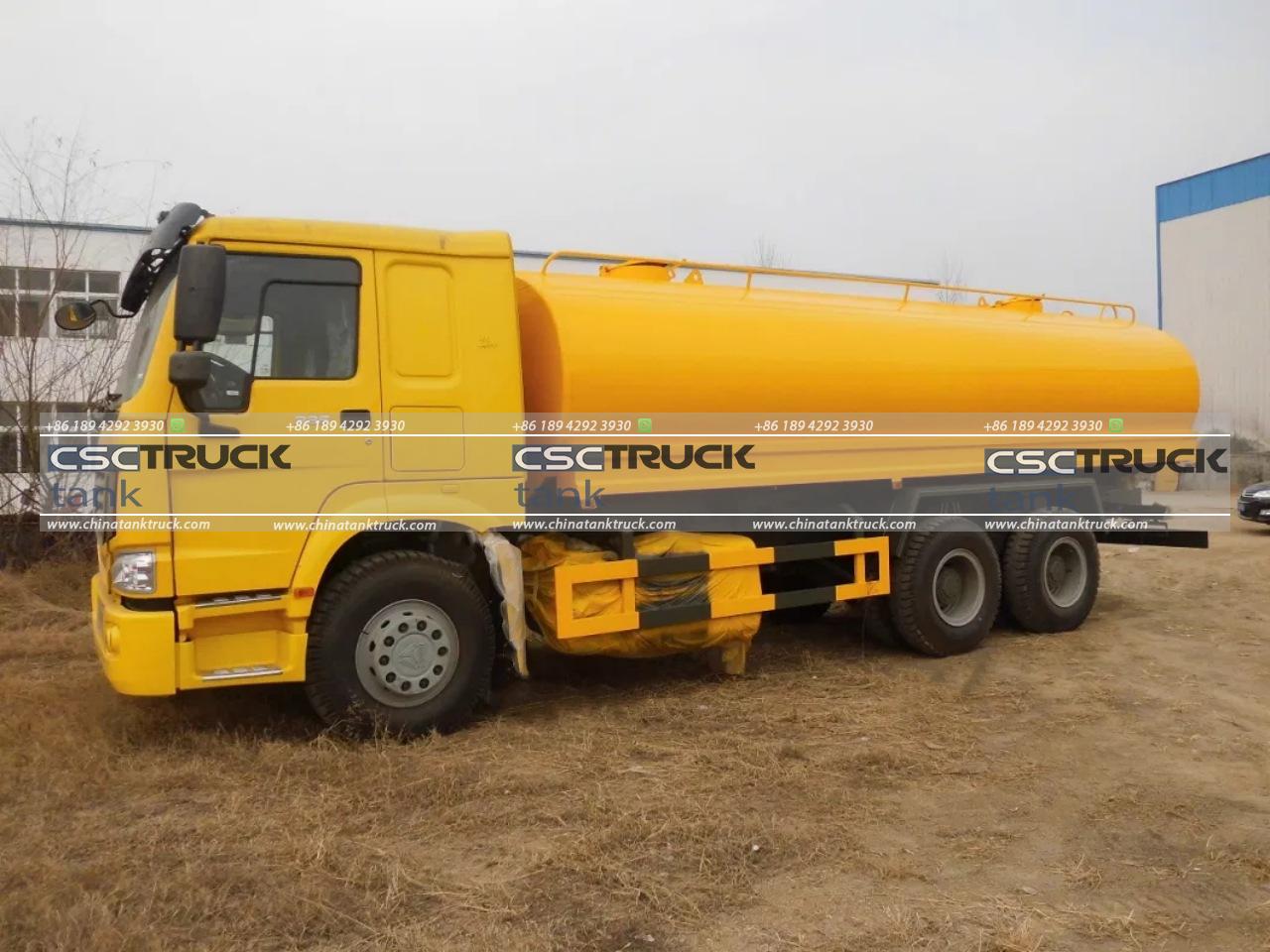
2. Firefighting and Emergency Response
Water trucks are valuable assets in firefighting, particularly in rural and remote areas where fire hydrants or other water sources may be scarce. These trucks can carry large amounts of water directly to the fire site, allowing firefighters to access a continuous water supply in areas without sufficient infrastructure.
In forest firefighting, for example, water trucks are often deployed to support firefighting crews with an accessible water source. They are also used in urban firefighting during times when water pressure is low or when hydrants are unavailable. The flexibility and mobility of water trucks make them ideal for rapid response to fires, as they can reach difficult-to-access areas where traditional fire equipment may struggle.
Beyond firefighting, water trucks can also serve as emergency water supplies during natural disasters. After events such as hurricanes, earthquakes, or floods, communities may temporarily lose access to clean drinking water. In these cases, water trucks can be dispatched to provide potable water to affected areas, helping ensure that residents have access to clean water for drinking, cooking, and sanitation.
3. Agricultural and Landscaping Irrigation
In agriculture, especially in regions prone to drought, water trucks are essential for irrigation. Farmers rely on consistent water supplies to keep crops healthy, but during dry seasons or droughts, they may lack sufficient access to water. Water trucks help fill this gap by transporting water directly to fields and farms.
In addition to crop irrigation, water trucks are also used for livestock watering. Animals require consistent access to clean water, and when natural water sources dry up or are contaminated, water trucks can help provide a reliable alternative. Some water trucks are equipped with specialized nozzles to deliver water in a way that minimizes waste and ensures even distribution, which is crucial for efficient irrigation.
For landscaping purposes, especially in urban areas, water trucks are often employed to maintain parks, sports fields, and large lawns. Landscapers may use water trucks to irrigate newly planted trees, shrubs, and flowers, ensuring that landscaping projects remain healthy and green despite seasonal dryness or water restrictions.
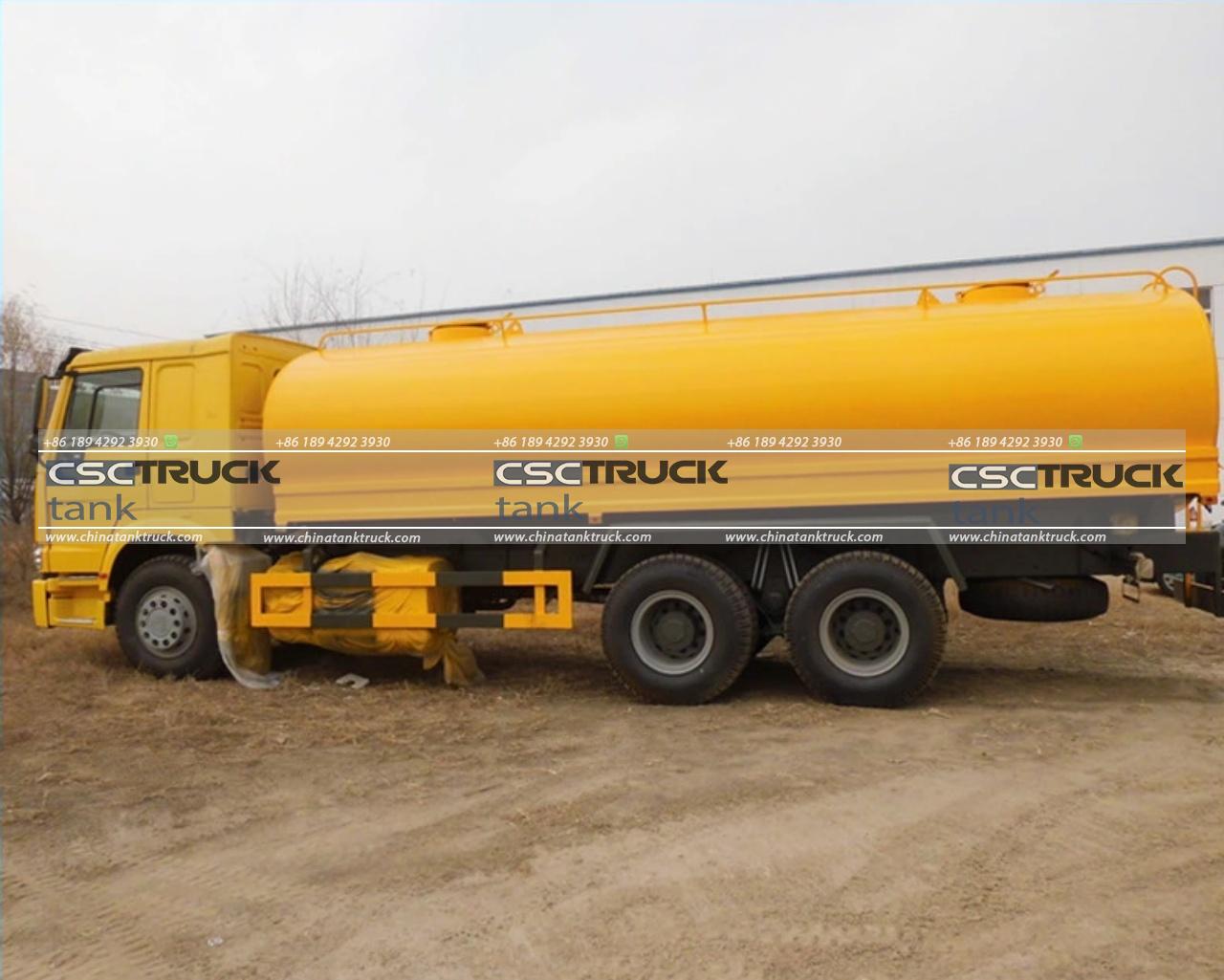
4. Road Construction and Maintenance
Water trucks play a pivotal role in road construction and maintenance. When building new roads or repairing existing ones, construction crews must maintain a stable and dust-free working surface. Water trucks help achieve this by dampening the ground to prevent dust and soil erosion, ensuring a safer and cleaner environment for workers and nearby residents.
In some cases, water trucks are used to mix materials for road construction, such as concrete and asphalt. Water is a key component in these mixtures, and having a water truck on-site ensures that water is readily available for creating the right consistency in paving materials. Additionally, during hot weather, freshly laid asphalt can dry and crack too quickly. By applying a fine mist of water, crews can control the temperature of the asphalt, extending its curing time and preventing premature damage.
5. Compaction for Earthworks
Compaction is an essential process in construction and earthworks, as it improves soil stability and prevents future settlement, which could compromise the integrity of a structure. Water trucks aid in this process by providing the moisture necessary for optimal compaction. Soil that is too dry cannot be effectively compacted, while soil that is too wet may become unstable.
The water truck operator carefully controls the amount of water applied to the soil, ensuring that it has the right moisture content for compaction. By doing so, water trucks contribute to a more stable and durable foundation, which is essential for projects such as building foundations, highways, and other large infrastructure projects.
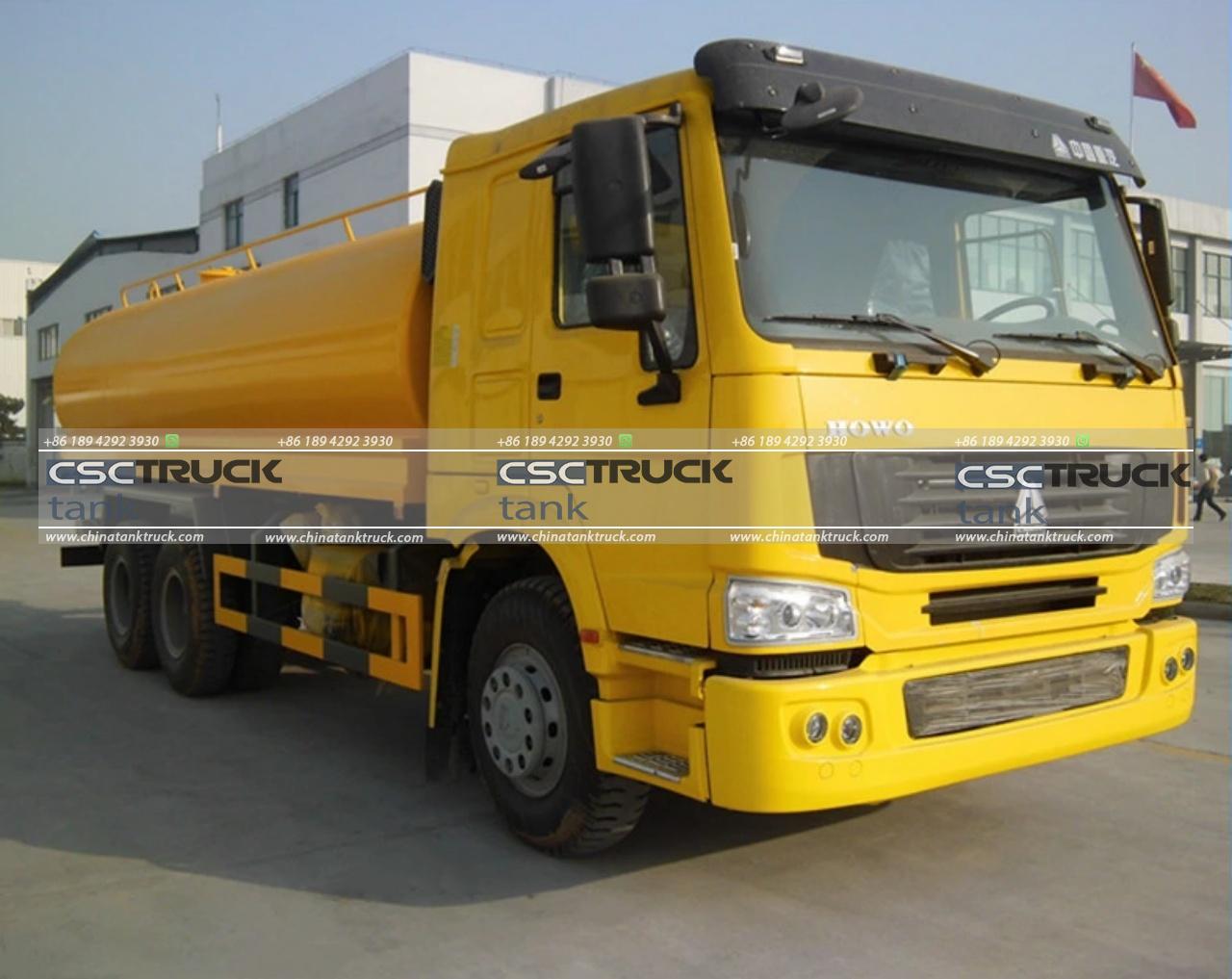
6. Event and Festival Dust Control
For outdoor events, festivals, and concerts held in open fields or dirt areas, dust control is essential for the comfort and safety of attendees. Large crowds can easily stir up dust, causing discomfort and reducing visibility, which can make the experience less enjoyable. To mitigate this, event organizers often bring in water trucks to spray water over walking paths, parking areas, and performance spaces.
The use of water trucks in these scenarios not only keeps dust at bay but also helps reduce the risk of respiratory issues for attendees. For multi-day events, water trucks may be used several times a day to maintain a dust-free environment. This application of water trucks has become increasingly popular in outdoor recreational areas where large numbers of people gather.
7. Water Storage and Delivery for Remote Areas
In remote communities or areas with limited infrastructure, access to clean water can be challenging. Water trucks provide a lifeline by delivering potable water directly to these areas. For instance, in rural communities, people may rely on water trucks for their daily water needs, particularly during times of drought.
Construction sites, temporary camps, and remote industrial facilities, such as oil rigs, also often require water deliveries for drinking, sanitation, and cooking purposes. By delivering clean, potable water to these sites, water trucks help support day-to-day operations in areas where permanent water systems are unavailable or impractical to install.
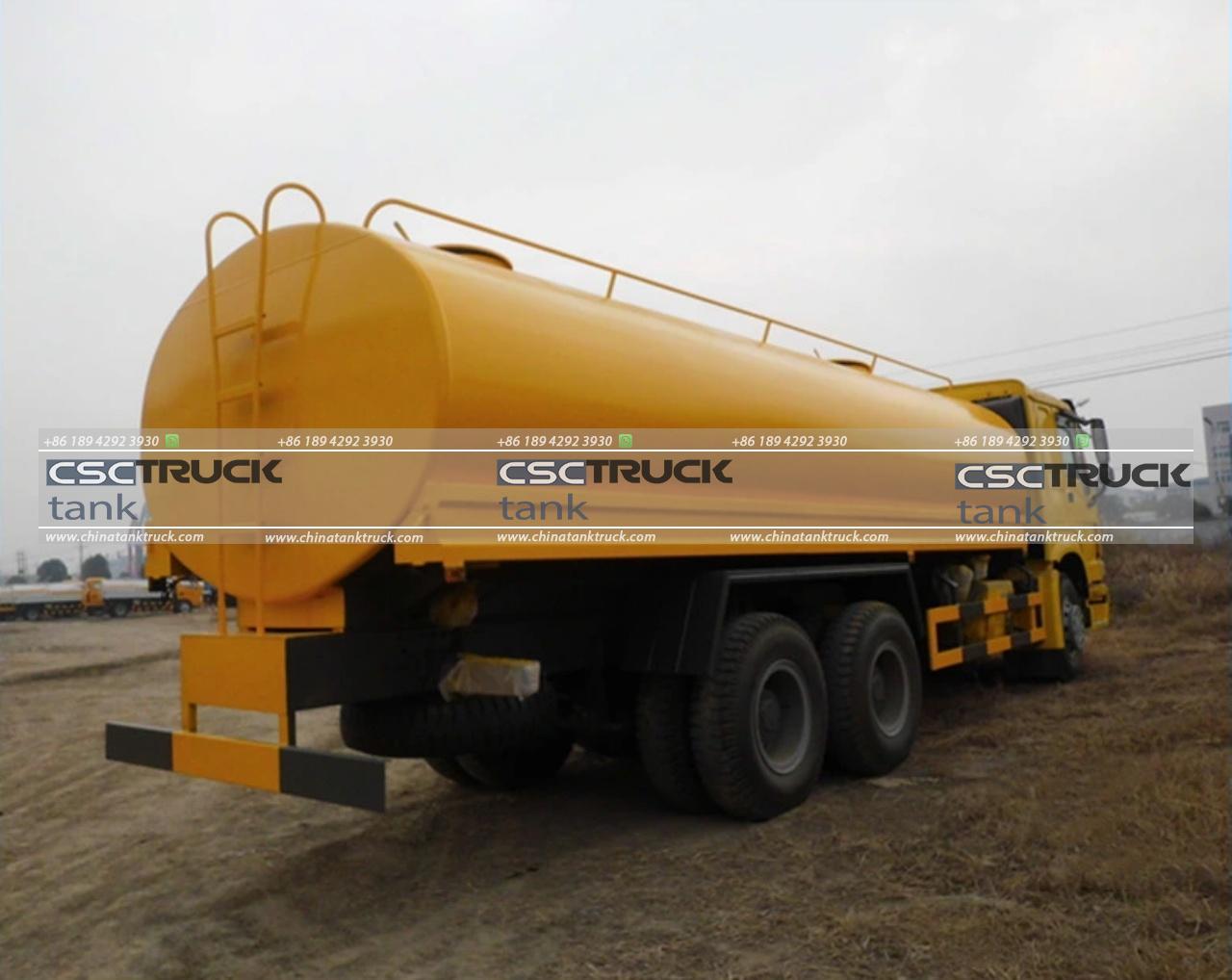
8. Water Supply for Environmental Projects
Environmental restoration and rehabilitation projects also benefit from water trucks. When reforesting an area or restoring a wetland, consistent watering is essential, particularly in the early stages of plant growth. Water trucks help by delivering necessary water to newly planted vegetation, ensuring its survival in harsh or dry climates.
Furthermore, in some conservation projects, water trucks are used to maintain temporary ponds or water features that support local wildlife, particularly in areas where natural water sources have been depleted. These temporary water sources help support ecosystems during restoration efforts, allowing animal populations to remain in or return to the area.
Conclusion
Water trucks are remarkably versatile and serve many critical functions across various industries and settings. From dust suppression and firefighting to agricultural irrigation and environmental projects, these trucks provide essential water supplies to places where it’s needed most. Whether supporting large construction projects, protecting public health at events, or delivering potable water to remote communities, water trucks play a vital role in improving safety, productivity, and quality of life. Their mobility, flexibility, and large water-carrying capacity make them indispensable in addressing both practical and emergency water needs.
